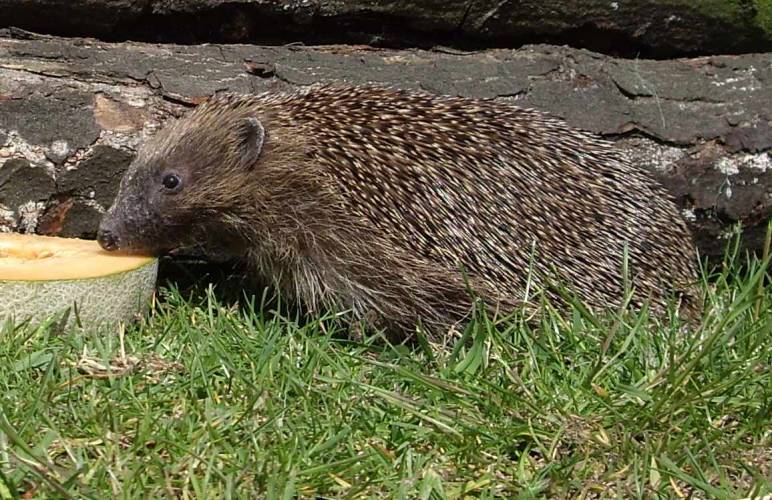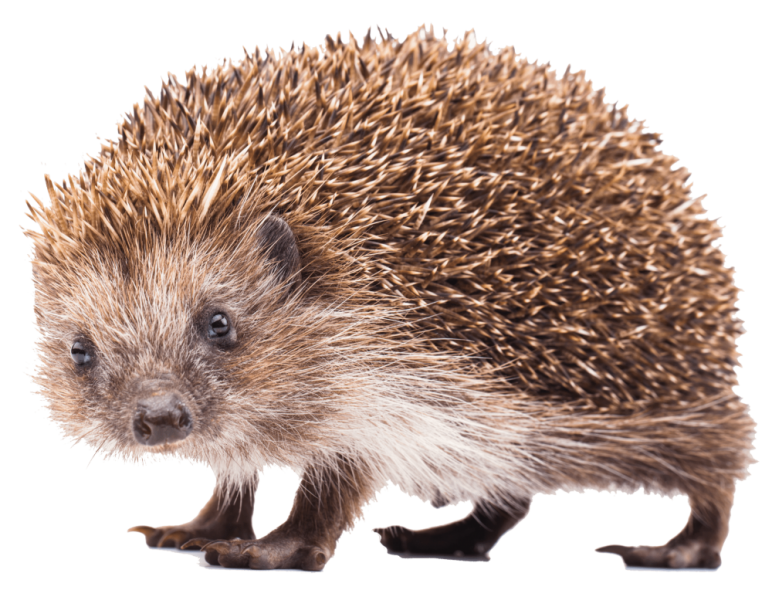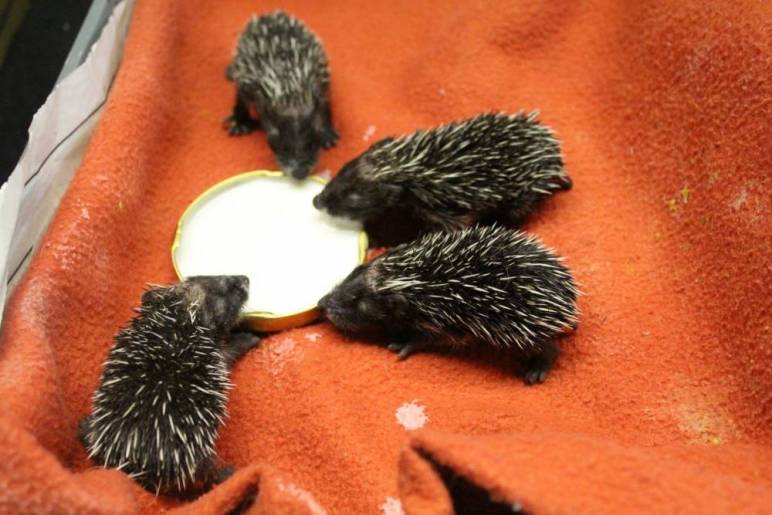Hedgehogs
Hedgehogs
Hedgehogs are now endangered. Ten years ago their numbers were thought to be around sixty million, currently there are about 1.5 million. This decline has been swift and if action isn’t taken immediately we could lose these fascinating creatures within ten years.
Each year the Liverpool rescue cares for approximately 500 hedgehogs, suffering from an array of ailments. Many are youngsters, found dehydrated and wandering around in daylight. They often have injuries that are infected with fly eggs and maggots and many are suffering internal parasites – these are lungworm, round worm and fluke.
Many hedgehogs are victims of road traffic accidents; some suffer burns in bonfires, while many are injured by strimmers, mowers and other garden implements. Hedgehogs also suffer from many diseases and infections, including ballooning, lungworm, ringworm, and internal parasites, all of which can prove fatal if left untreated.
If you would like to help the hedgehogs in our care you can make a regular or one-off donation here.



The use of slug pellets in gardens can be deadly to hedgehogs, as they eat the poisoned slugs, which in turn, poison them.
All hedgehogs are treated by a vet throughout their stay and remain at the shelter until they are healthy and are large enough to successfully hibernate. Many underweight hedgehogs are overwintered and kept warm to prevent hibernation. Once the ideal weight has been reached, hedgehogs are placed in outdoor runs to acclimatise, before being released back into the wild.
Staff at the rescue hand rear many young hoglets each year, taking them home each evening whilst they are vulnerable and requiring additional feeds and warmth. This is a specialist job as youngsters don’t suckle goat’s milk but lap, so it can be an extremely tricky and complicated process. Hedgehogs have a tendency to gorge, so carefully measured portions are fed at regular intervals throughout the day and night.
Blind, three-legged and disabled hedgehogs are released in walled/secure gardens. A home check is carried out prior to the release and these hedgehogs are subsidised and closely monitored by their foster parents.
Hedgehog Facts
• Hedgehogs have soft fur underneath and on the face.
• They have their first litter around June/July and can have a second litter in autumn which often don’t survive as they can’t reach hibernation weight.
• Babies/kittens are born pink, spineless, blind and deaf. Their spines develop after two hours; their eyes open between 10-14 days. They leave their mothers around six weeks.
• They have poor eyesight but a powerful sense of smell and good hearing.
• Each hedgehog has up to 4-6 thousand spines.
• In the wild a hedgehog lives up to 4-6 years, in captivity they can live until they are eight.
• Hedgehogs are excellent climbers. They have strong claws which are excellent for climbing and digging.
• When in hibernation, a hedgehog slows its breathing and only breathes every few minutes, appearing dead. However its spines will bristle when touched. They wake up for a short time every seven to eleven days. They drop their body temperature when hibernating and the heart will only beat around 20 beats per minute.
• Hedgehogs are solitary and only come together to mate. Their territory can cover three miles.
How You Can Help Them
•You can make a one-off or regular donation to help the hedgehogs in our carehere .
Always seek professional advice before attempting to care for an underweight/injured hedgehog.
• Hand rearing babies is a difficult task and should be left to the experts.
• To successfully hibernate, a hedgehog must weigh a minimum of 600 grams. If you see a hedgehog out during the winter months and are concerned about its weight, weigh it, and if it is an acceptable weight, return it to the wild. Hedgehogs do come out of hibernation during mild periods in winter. If it is too small take it to the nearest rescue.
• If a hedgehog is seen wandering around in the daylight, this is an indicator that something is seriously wrong, as they are nocturnal mammals. However, during summer months it is normal for hedgehogs to begin feeding early evening as the days are longer.
• If an injured or vulnerable hedgehog is found, contact a wildlife rescue for advice. If it is badly injured always take it to a vet or to the nearest rescue. Most vets will treat hedgehogs and other wildlife for free.
• If a hedgehog has to be kept for any length of time, place it in a secure, ventilated, dry container, a box or cat carrier will suffice. Provide a hot water bottle or heat pad covered with a towel, and leave it with a little food and water. If there is no obvious injury, cover the hedgehog with straw or long shredded paper.
• If you are dealing with a very young hedgehog, remember that they can only digest goat’s milk. It is also important to ensure that they do not overheat on a very hot heat pad or hot water bottle.
• If you are feeding hedgehogs in the wild or temporarily, while they are in your care, never provide milk as hedgehogs are lactose intolerant. Cat or dog food and cat/dog biscuits are ideal.
• Never give hedgehogs fish flavoured food or bread as these upset their digestive system. Always leave water out, as dry spells can result in serious dehydration.
• Never spray a hedgehog with cat or dog flea spray.
• Remove litter and broken glass from gardens and other green areas as cans, bottles and plastics can injure and kill hedgehogs.
• Check that drains or other pitfalls in the garden are covered to avoid animals falling to their deaths or suffering serious injuries.
• If you have a pond ensure that there is an incline which a hedgehog can climb. They are good swimmers but struggle to climb the steep sides of a pond. If the sides of a pond are sheer, add a flat piece of wood or a sturdy branch to enable a hedgehog to climb out.
• Never use slug pellets, pesticides or other harsh chemicals in the garden.
• Always check bonfires before lighting them as hedgehogs and other wildlife will take up residence within them.
• Before raking compost heaps check for hedgehogs and other wildlife.
• Pay close attention to long grass before mowing and strimming, especially in June/July when hedgehogs have their first litter and maybe nesting within it.
• Provide a hedgehog house in a sheltered/quiet area of the garden.
Contact Numbers:
Freshfields – 0151 931 1604
Tiggywinkles – 01844 292292
Donate Here
Lost & Found Pets

Merchandise
Exclusive merchandise available direct from the rescue. Don't miss out, follow the link to make your purchase today.


